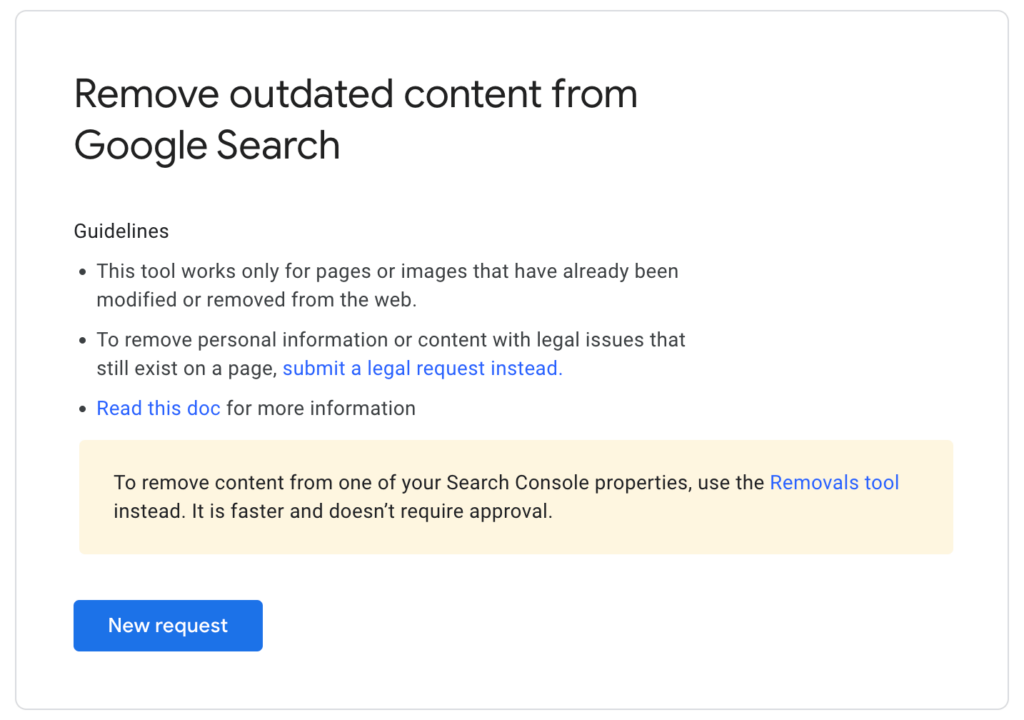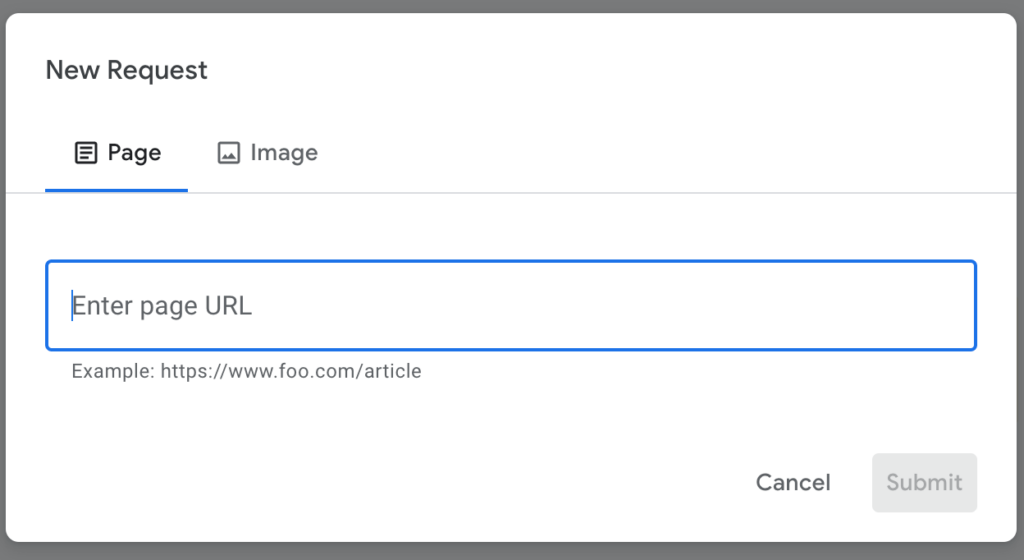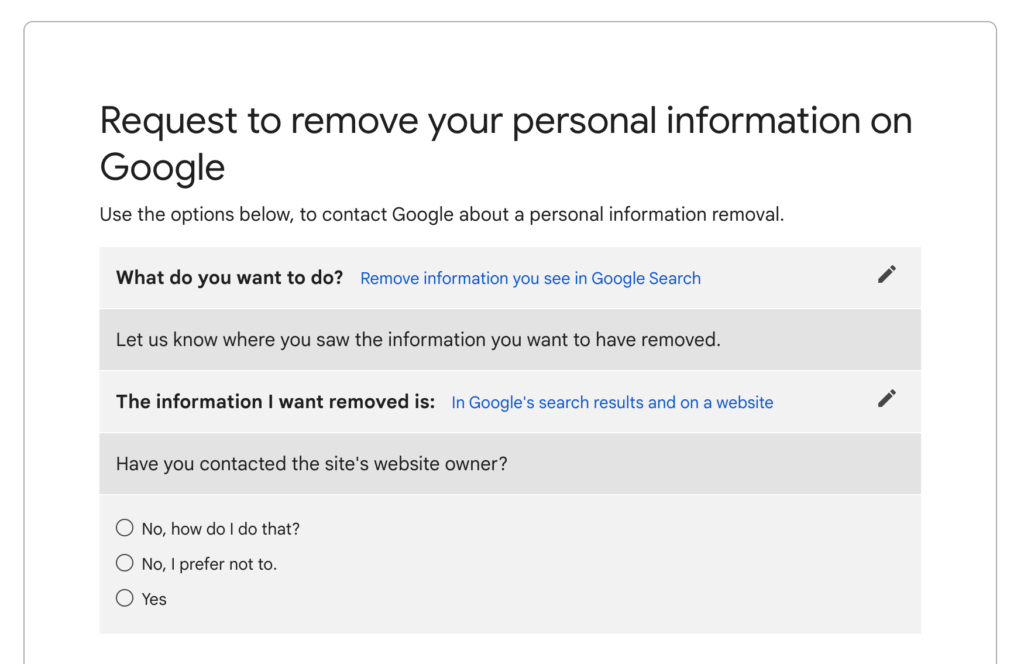How to Remove Articles from the Internet
Will Simonds
Reading time: 5 minutes

Table of Contents
Some say “there’s no such thing as bad publicity,” but if there’s a negative article written about you that is dominating search results, you probably have a different opinion.
Negative news articles can severely impact your reputation and they can be very difficult to remove. Thankfully, we know some effective tricks to help get rid of them.
Online news articles and their negative effect on you
A negative article about you can have an impact on several aspects of your life. You might get fired from a current job or lose a potential opportunity. If you happen to be a business owner, a negative article could severely affect sales, partnership opportunities, or hiring new talent.
For another thing, a negative article can cause stress and anxiety, and take a toll on physical and mental well-being. In the worst cases, it can even expose you to harassment or bullying. On top of that, it can also impact your personal relationships.
So what can be done?
The most important thing to keep in mind is you must act fast, before the article spreads across the Internet and on social media, beyond a publisher’s control.
Five steps to remove an article from the Internet
There is no one-size-fits-all solution for removing a negative article from the web. Therefore, going through all these five steps outlined below as soon as possible will be the most surefire way for you to succeed.
1. Identify all articles you want to remove from the Internet
To know what needs to be removed, find all the articles that exist. If you’ve encountered one, there may be more. Many newspapers recycle stories to different publications, so it’s important to track them all down and flag them for removal.
Start by Googling article titles in Incognito Mode. This should bring up the article you want to remove, along with others (if there are any). Note them and, just to be safe, perform a second search. This time, widen the scope by adding a few alternative keywords.
2. Hire a data-removal service like DeleteMe
If you don’t have prior experience removing information from the Internet, please call the experts. Sign up with an online privacy and data-removal service—such as DeleteMe—and get to the root of the problem by removing your personal data from the Internet.
DeleteMe takes care of your online privacy by removing data you request, and also by conducting routine checks to ensure your personal information doesn’t end up being sold online to the highest bidders—namely marketers and fraudsters.
If you find personal info listed online, our privacy advisors determine if we can remove it for you. We also provide detailed instructions on how you can remove it yourself, so you never again have to worry about not knowing what to do in these situations.
3. Request to have the article unpublished
If you decide to go through this process yourself instead of signing up for a service, a word to the wise: it sounds easy but it’s actually very easy to mess up.
First of all, you need to find the contact information for the website or publication. Depending on the listed contact information, you then send a request that the article be taken down.
But, before you make any contact, you need a strategy. Sending furious demands, or otherwise being unprofessional, might ruin your chances of establishing contact at all.
In some instances, it can be a better plan of attack to ask the article be made anonymous, or request specific edits. Whatever the case may be, make sure that you thoroughly research the unpublishing process of the publication in question to identify the best point of contact.
It’s crucial to prepare sound and valid arguments against the reasons the publication will counter with to defend the publication of the article. Prepare any necessary evidence or documentation to support the removal request before contacting.
In this step, success depends entirely on the amount of careful planning and research.
4. Ask to remove the article from Google search
If steps above are unsuccessful, there’s still hope to remove the article by contacting Google itself. They can’t remove the article per se, but they can remove it from their search results.
According to Google’s updated search removal policy, they will accept your removal request in the following cases:
- The article has been removed online but still appears in search results (“outdated content”)
- The article contains sensitive personal information (email, physical address, phone number, or images of identification documents)
- The article includes confidential login credentials
- The article violates intellectual property rights, such as trademark or copyright
- The article includes content that doesn’t comply with a court order
Remove outdated articles from Google
In the case that the article has been removed online but still appears in search results—i.e. “outdated content”—simply use Google’s Remove Outdated Content tool. It allows you to request an update to its servers.
Just start by clicking the “New Request” button.

Then, enter the URL that needs to be updated, and the information required to submit your request.

Send other removal requests to Google
For any other removal requests from Google, the process remains equally simple—you just need to use a different removal tool.
All you need to do is answer the questions provided in the tool, and then submit your request.

5. Bypass the news article
If none of the previous steps worked, the last option is to try burying the negative search results. This means creating new content that ranks higher than the negative article in search results.
But, before you begin, you need to understand how search engines work:
Google search results that present first are the results deemed most relevant for the user. To determine this relevance, search algorithms look at factors like keywords, authority and usability of pages, quality of content, expertise of sources, and the user’s location and settings.
The page that hits the most of these factors will be ranked the highest, and since newspapers often have high authority, it’s not a surprise that their article about you will rank well.
Now, remember, burying an article in a high-ranking newspaper can be a tricky thing. However, it’s not impossible, so here are some things you can do:
- Create new public social media profiles on well-known platforms
- Create a Wikipedia page
- Gain positive media mentions on high-authority websites and publications
DeleteMe and you personal information online
Now you should have a better idea on how to remove negative articles from the Internet. But, you shouldn’t stop there when it comes to protecting your online privacy.
The truth is, an alarming amount of information can be found online on virtually anyone. Even if you’ve never shared anything, your personal information, like phone number, current or previous addresses, names of relatives, property value, or marital status, can all be found publicly online.
Therefore, just removing one unwanted article from the web is not enough to protect your online privacy. To make sure your personal information stays safe, learn even more ways to protect your privacy, or let us do it for you by signing up for our service.
Our privacy advisors:
- Continuously find and remove your sensitive data online
- Stop companies from selling your data – all year long
- Have removed 35M+ records
of personal data from the web
Save 10% on any individual and
family privacy plan
with code: BLOG10
news?
Don’t have the time?
DeleteMe is our premium privacy service that removes you from more than 750 data brokers like Whitepages, Spokeo, BeenVerified, plus many more.
Save 10% on DeleteMe when you use the code BLOG10.
















